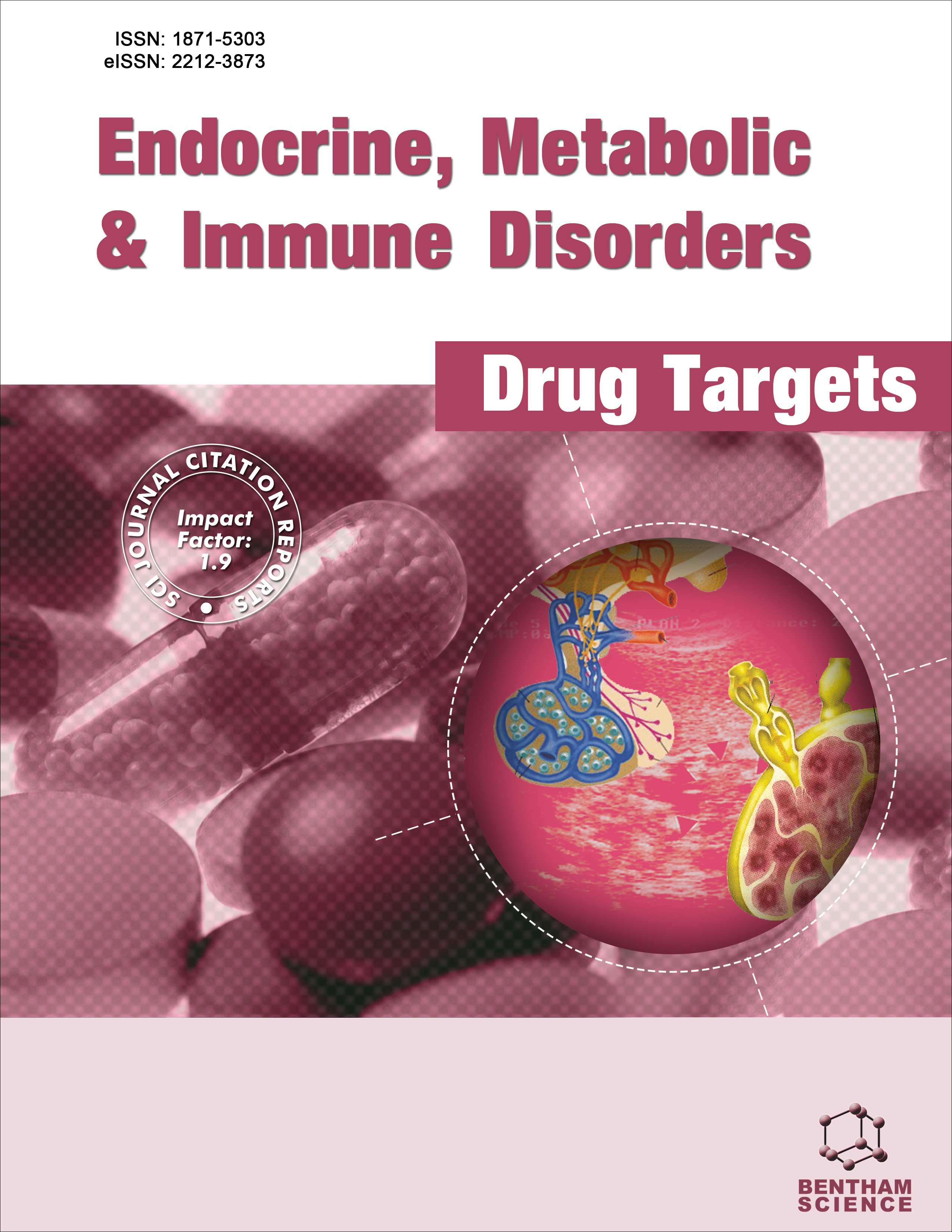-
s Association of Obesity based on Different Metabolic Status with Risk of Gout Occurrence in Patients: A National Study
- Source: Endocrine, Metabolic & Immune Disorders-Drug Targets, Volume 24, Issue 8, Jun 2024, p. 973 - 980
-
- 01 Jun 2024
Abstract
Background: Obesity often co-exists with metabolic abnormalities, but the results of studies on the relationship between obesity, metabolic abnormalities and the risk of gout are inconsistent. Objectives: We aimed to study whether there was a mutual regulation between obesity, metabolic abnormalities and the risk of gout. Methods: We conducted a cross-sectional study to expound the association between obesity based on different metabolic statuses and the risk of gout. Patients were derived from Nationwide Readmission Database (2018 sample). Results: A total of 9,668,330 records were recruited for analysis from January to December. The risk of gout in the obesity group, metabolic abnormalities group and obesity combined with metabolic abnormalities group was 1.67 times (OR = 1.67, 95%CI 1.64-1.70), 3.12 times (OR = 3.12, 95%CI 3.09-3.15) and 4.27 times (OR = 4.27, 95%CI 4.22-4.32) higher than that in the normal control group. For different metabolic components, OR value was highest in hypertension group (OR = 2.65, 95%CI 2.60-2.70 and OR = 4.85, 95%CI 4.73-4.97), followed by dyslipidemia group (OR = 2.23, 95%CI 2.16-2.30 and OR = 3.74, 95%CI 3.55-3.95) and in hyperglycemia group (OR = 1.73, 95%CI 1.66-1.80 and OR = 2.94, 95%CI 2.78-3.11). Fewer components of metabolic syndrome were associated with a lower risk of gout in both nonobese and obese patients. Conclusion: When metabolic abnormalities were present, obesity induced a higher risk of gout. Different components of metabolic abnormalities had different effects on the risk of gout occurrence, and the number of metabolic abnormalities was closely related to the risk of gout occurrence. Follow-up and intervention methods targeting obesity and metabolic abnormalities should be considered for patients with gout.


